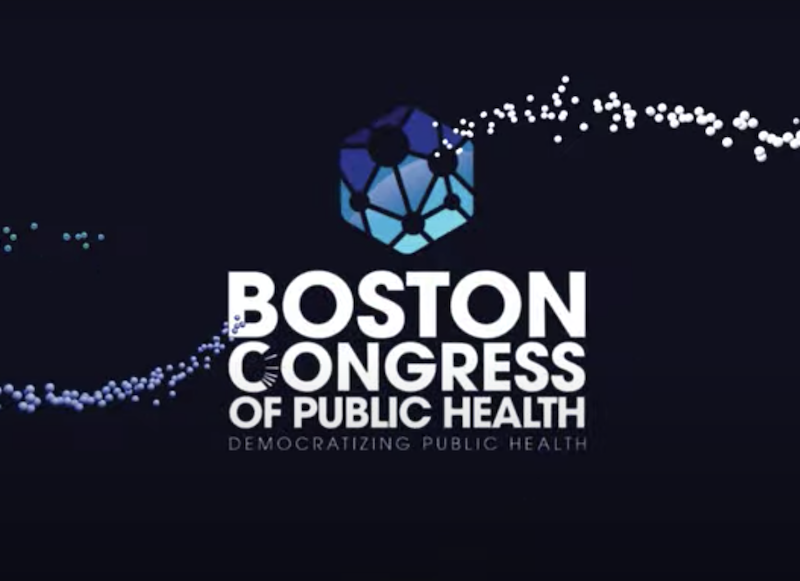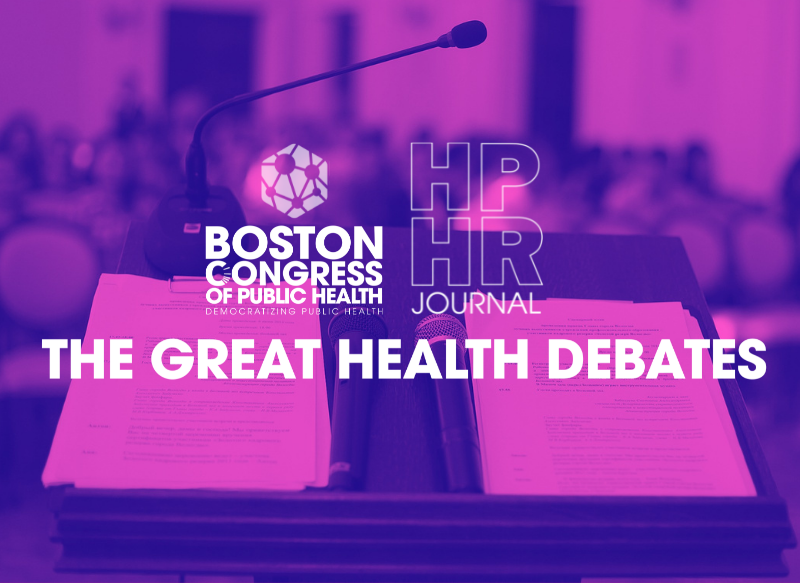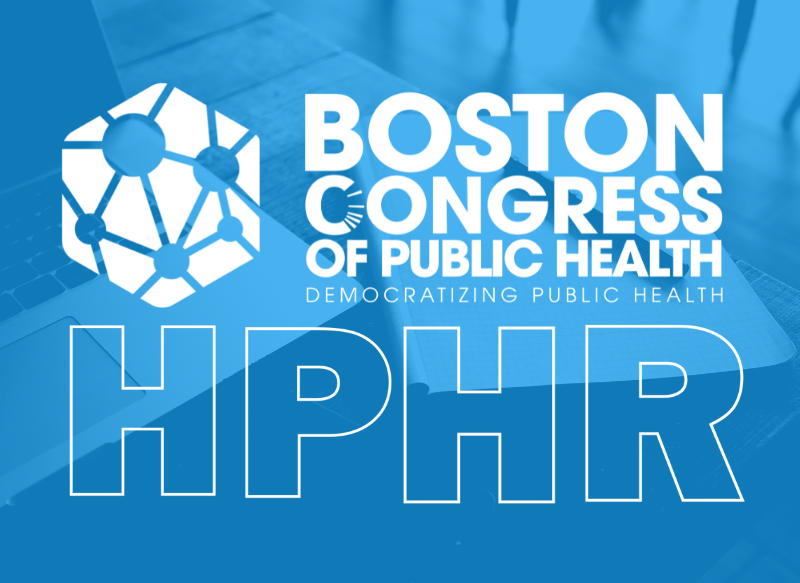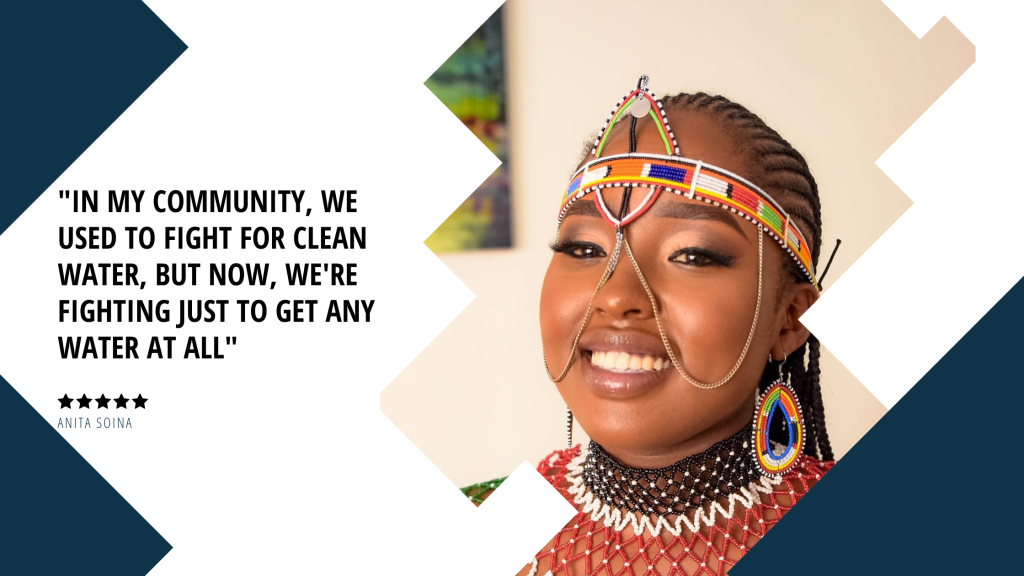
Did You Know: On February 14, 2023, a Kenyan Senator was dismissed from parliament because of a blood stain on her trouser. This was an attempt by the senator to raise awareness about period poverty. Following her dismissal, she left for a school in the capital city to distribute sanitary pads.
Welcome to my Public Health Thought Leadership Series, where I will discuss the theme, “The Climate Crisis Is a Health Crisis”, with experts across diverse public health fields.
Today, our guest is Anita Soina. She is a Kenyan environmentalist and the Global Youth Champion for the UN-hosted Sanitation and Water for All (SWA). Anita hails from the nomadic Maasai community. Outside her official role, she runs an eponymous organization, The Soina Foundation, that tackles several societal issues, including barriers to Water, Sanitation and Hygiene (WASH) services. In 2022, she became the youngest Kenyan to contest for parliament after her political run with the Green Thinking Action Party, a sustainability-driven political party.
Now, to the topic of the day:
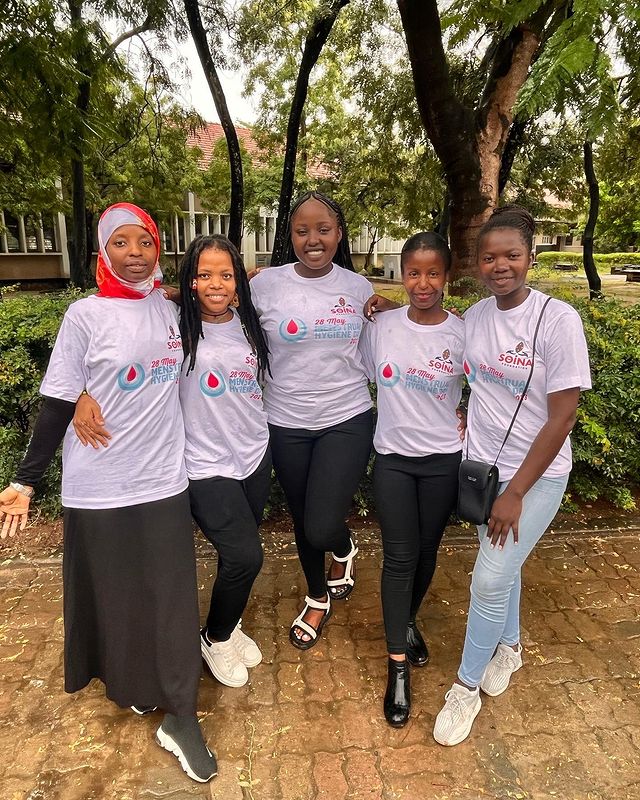
Period poverty is a significant public health issue in Kenya, affecting 65% of women and girls. Over the years, the Kenyan government has tried to eradicate this problem, but failure to address four critical menstrual health enablers has hampered these efforts. These enablers include:
During climate emergencies, the poor implementation of these menstrual health enablers becomes even more evident. I sat down with Anita to discuss how the impact of persistent drought on sanitation facilities has worsened period poverty in Kenya.
Kenya has recorded five consecutive failed rainy seasons. Describe the drought situation in the country.
ANITA: Between March and June 2023, 5.4 million Kenyans were projected to be at risk of food and water insecurity due to drought conditions. The drought has already left about 2.5 million livestock dead and has been named the worst in 40 years. It’s a dire situation.
In my community, we used to fight for clean water to use. But now, we’re fighting just to get any water at all. This shows how much sanitation and hygiene have been affected.
Period poverty refers to inadequate access to menstrual hygiene products, sanitation facilities and comprehensive information about menstruation. In what ways have prolonged droughts worsened menstrual health?
ANITA: The Kenyan government’s pad distribution program primarily targets schools. But a significant flaw of this program is that it excludes girls who are not enrolled in school. These are the same girls who come from resource-limited communities and represent the population most vulnerable to period poverty.
In an attempt to bridge this gap, many organizations go to these rural communities to introduce reusable pads, which are relatively cost-effective. However, many of these communities lack access to water, too—these areas are particularly vulnerable to drought issues.
While the concept of reusable pads is commendable, the lack of access to water poses a significant hygiene challenge. People in these communities don’t even have enough water for their basic needs at home. Now you can imagine giving them washable sanitary products that require frequent washing to maintain.
In my work with communities, I have seen that the problem of period poverty worsened in areas where girls do not have access to water. Without access to menstrual products and water, sanitation and hygiene (WASH) facilities, girls resort to leaves, blankets, and animal skin; some even dig a hole and just sit there.
The things we think are unimaginable are the things that are happening.
Getting the World’s Attention
ANITA: During COP27, images of gaunt giraffes sprawled helplessly in the wild sparked conversations about the drought situation in northern Kenya. These pictures brought to light the severity of the situation. But the drought was already extreme even before the images went viral.
Unfortunately, these issues are not widely discussed, primarily because our narratives are often shaped by individuals who only read about them online and lack firsthand experience. So they rely on whatever information is available on the internet.
Local Advocates Are Better Placed to Tell Their Stories
ANITA: During a visit to a school my team and I have partially adopted, we met a girl who told us that she had had sex to meet her basic needs. It was so painful.
Most water points are managed by men. This further exposes women to vulnerable situations. For example, in Kibera, a slum in Kenya, someone may go to fetch water but not have the money to pay for it, and they may end up paying through sexual favors.
These are not just stories we read on the internet but real experiences we encounter during our projects on the ground.
Reading about things on the internet can give us some information about what is happening, but it is when we visit these places ourselves that we truly understand the underlying issues.
By listening to the people directly, we realize that there are numerous problems yet to be addressed.
It is essential to provide a platform for grassroots community leaders and victims to share their stories and experiences so that we can tackle the present challenges.
Numerous Policies Exist, But Little Political Will
ANITA: I’ve come to realize that we have an abundance of policies, beautifully written, but they remain unused.
Through my work, I support leaders striving to implement these policies. This includes sharing insights from the grassroots to help them understand what needs to be improved.
Mutual Accountability Through the SWA
ANITA: Kenya has made numerous commitments as it concerns water, sanitation, and hygiene. At the UN 2023 Water Conference, the Kenyan government pledged to construct 100 mega, large and medium-sized dams in the next five years. SWA plays a role in monitoring these commitments and providing support.
SWA uses the mutual accountability mechanism to hold partners accountable. SWA has over 250 partners, including governments, civil society organizations, the private sector, and academic institutions.
At SWA, we believe that we are left with empty promises without accountability.
Even before the water conference, we met with our partners. During these meetings, they shared their progress, ongoing work, and we discussed the necessary steps to complete them.
This mechanism is the best in the sector because having a partner that holds you accountable makes it easier to deliver on your commitments. It’s a model that can be applied in every sector. Many governments, including Malawi and Uganda, are partnering with SWA, and we welcome more partners to join us.
The mission of the Boston Congress of Public Health Thought Leadership for Public Health Fellowship (BCPH Fellowship) seeks to:
It is guided by an overall vision to provide a platform, training, and support network for the next generation of public health thought leaders and public scholars to explore and grow their voice.
